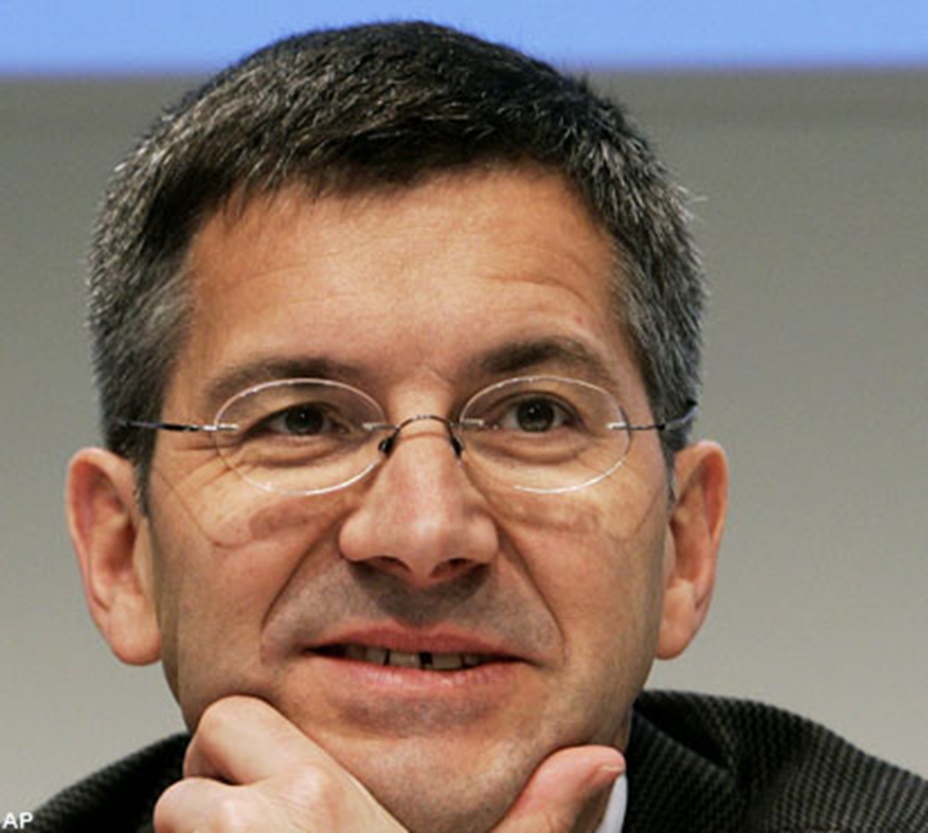Adidas Group CEO Herbert Hainer offered a wide-ranging Q&A with METRONIEUWS in which he talked about Euro 2012 and its importance to the brand, world sporting events, the direction sportswear is heading and what makes people spend so much money on sneakers.
Q: How important are Euro 2012 and the Olympics to adidas, both as a revenue source and a brand platform?
Hainer: Both are important because they have huge exposure around the world. Many million people will watch them, which makes them a great platform for our brand. But from the commercial perspective, they’re two different animals. The European Championship in football is a very good commercial opportunity because we’re the sponsor and outfitter of UEFA. The Olympic Games allow us to showcase our brand, to show that we’re the Olympic and performance brand and equip many different sports and athletes, but it doesn’t have an immediate commercial impact.
Q: What, from your perspective, will count as a success in Euro 2012 and the London Olympics?
Hainer: I hope two of our teams will make it to the European Championships final. That would give us additional opportunities, because people across Europe would get excited as well. But as far as I’m concerned, both the Olympics and Euro 2012 are already a success, because the products are selling well.
Q: What does it tell you about society when spectators will buy expensive jerseys of their national or club team? It doesn't make any logical sense that one buys the shirt just because one watches a game…
Hainer: I’m obviously not a psychologist, but my opinion is that people want to belong to somebody, to a family. The football club is to a certain extent a family. That has been the case for the past 50 years. You have always had die-hard fans who follow their teams and travel huge distances to watch them. They do it even though it might be a huge hassle and they might end up seeing a bad game in the rain. But they have this feeling of belonging. And nowadays, and that is a difference to the past, they also express that feeling by wearing the team shirt to express to the public, “I’m a fan of the team. I belong to this family.”
Q: Will smart shoes and shirts solve the global obesity problem?
Hainer: One of the reasons I’m very optimistic about the sporting goods industry is related to the fact that today more people are conscious about a healthy lifestyle. At the same time, we see obesity all over the world, even among children, and even in China. Twenty years ago that would have been hard to imagine. To fix this, we have to get people to move their bodies more, and that will obviously help our industry as well. Of course that is not the only problem -- they have to eat healthier as well. But doing sports is extremely important.
Q: So, in other words, what’s good for adidas is good for the world’s health?
Hainer: I’d say it the other way around: What’s good for the world population is good for us.
Q: Clothing chains compete by setting prices as low as possible, but people pay $80 for a pair of your shoes. What’s the secret?
Hainer: The consumer doesn’t pay $80 without thinking. You have to give him a reason. Over the past 30 years or so we’ve built up a lot of credibility, and products that we deliver to consumers have never disappointed them. For credibility consumers are willing to pay a bit more.
Q: You’re a football fan. How do you think goal-line technology will impact football?
Hainer: Referees need technical support to decide whether the ball was in or not, and to be honest, a technological solution will come one day, no matter what. A goal can decide a game, and the difference between a winner and loser can decide about millions of Euros. Goal-line technology would protect referees, too; they can’t see everything if there are five people crawling on the line and the ball is somewhere between them (METRONIEUWS, 6/13).




